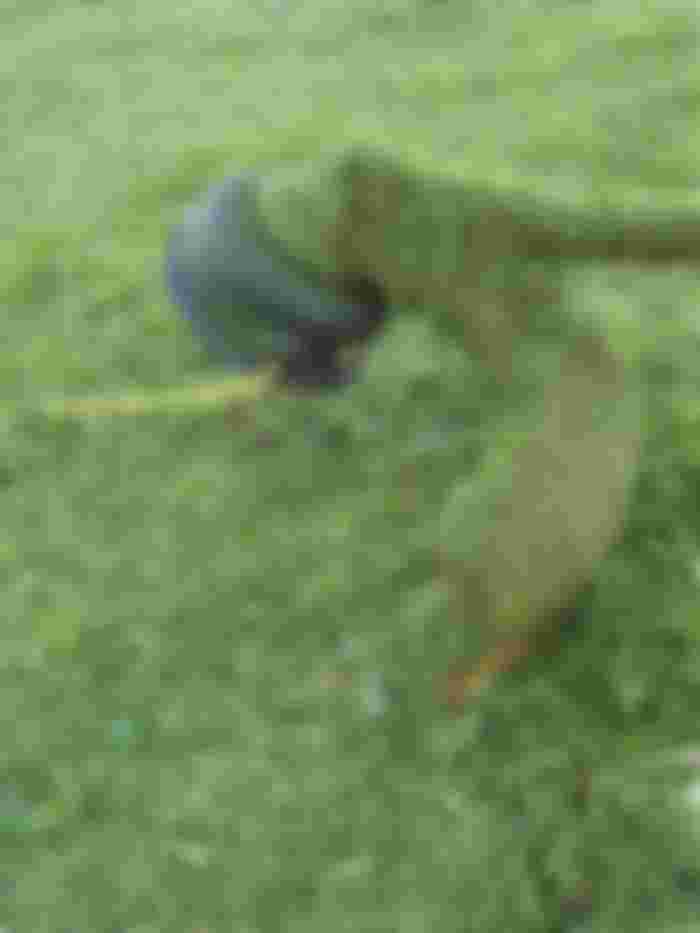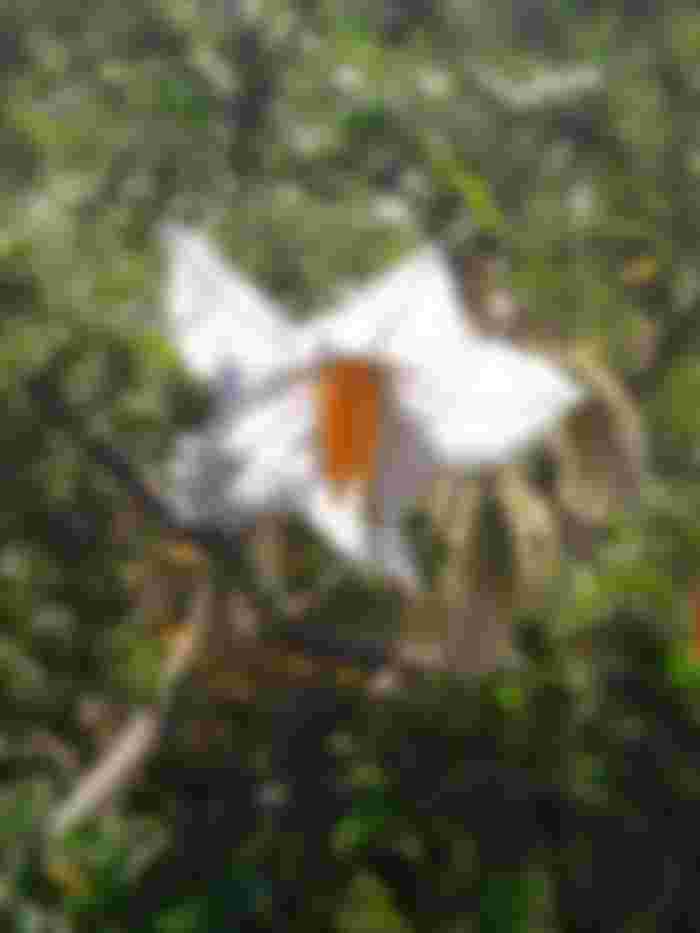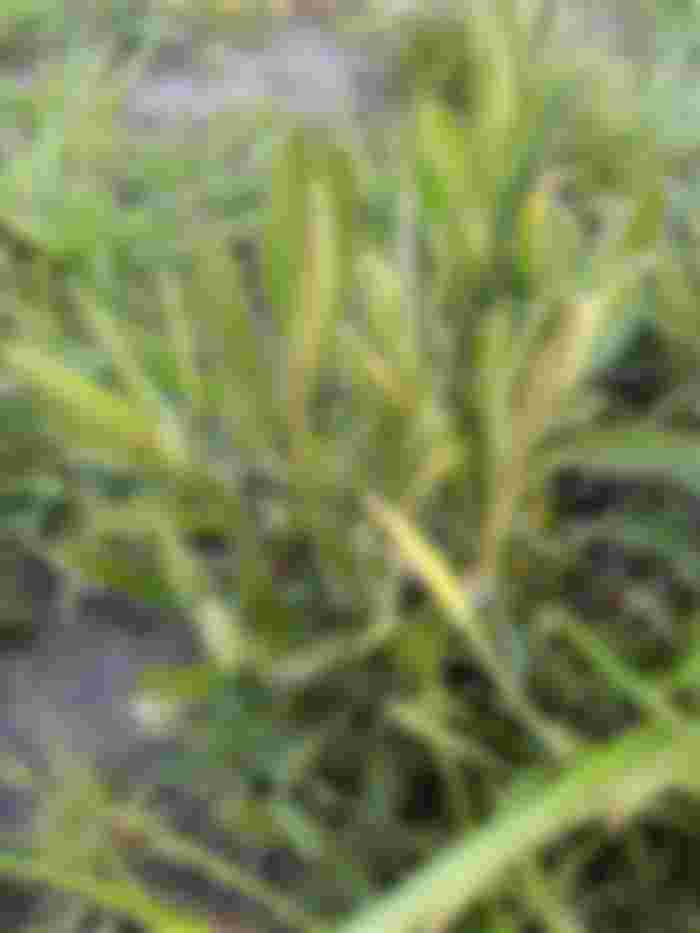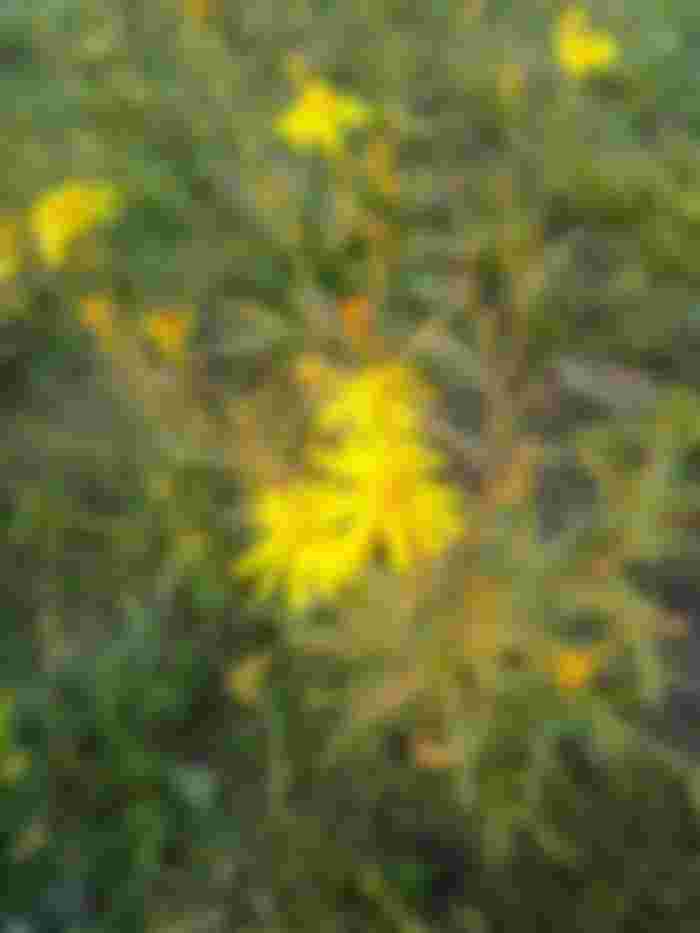[ESP-ENG] Reflexiones de un desmalezador obligado | Reflections of an obligated grass cutter
Hay las cosas que se esperan
y hay las cosas que aparecen,
como la hierba que asoma
sin permiso de la mano
del hombre que no imagina en la tierra
nada que no haya plantado
Como la maleza, Gabo Ferro
There are the things that are expected
and there are the things that appear,
like the herb that emerges
without permission from the hand
of the man who does not imagine in the soil
nothing that he has not planted
Like the weeds, Gabo Ferro
Odio cortar el pasto. No en todos los sentidos, sin embargo. No me disgusta la actividad de cortar el pasto en su dimensión física: el ritual de preparar la desmalezadora, colocar la tanza y el combustible, accionar el motor; caminar de manera ordenada moviendo la cortadora de un lado a otro. Y luego el aroma del pasto recién cortado. Y el paisaje tan prolijo. Todas estas cosas tienen sin duda su atractivo. Y aun así odio cortar el pasto.
I hate cutting the grass. Not in every way, though. I don't dislike the activity of mowing the grass in its physical dimension: the ritual of setting up the weed whacker, putting in the clippers and fuel, running the engine; walking in an orderly fashion moving the mower back and forth. And then the smell of freshly cut grass. And the neat landscape. All of these things certainly have their appeal. And yet I hate cutting the grass.
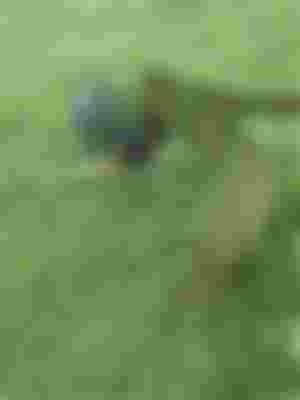
Cuando corto el pasto me siento poderoso. Pero no me gusta sentirme poderoso. No quiero ese poder. El poder de matar miles y miles de plantas con mi máquina, como un asesino vegetal en serie. Ya sé que el césped no se muere cuando lo corto. Por eso aclaro: en realidad no tengo césped, solo pastos, yuyos, lo que quiera crecer en “mi” tierra sin pedirme permiso. Y tampoco lo tengo, solo crece allí. Mi tarea como buen ciudadano es controlarlo. Y no quiero hacerlo.
When I cut the grass I feel powerful. But I don't like feeling powerful. I don't want that power. The power to kill thousands and thousands of plants with my machine, like a serial plant killer. I already know that grass doesn't die when I mow it. That's why I clarify: I don't really have a lawn, just grasses, weeds, whatever wants to grow on "my" land without asking my permission. And I don't have it either, it just grows there. My task as a good citizen is to control it. And I don't want to do it.
Cuando paso la desmalezadora, siento el aroma del pasto recién cortado. Me gusta ese olor. Lo disfruto. Pero también sé que ese aroma que me gusta tanto es el alarido químico de miles de plantas cuando son cortadas. Puede ser que no todas mueran, que no griten, que no se desgarren de dolor. Pero aun así es el aroma de las plantas que están siendo dañadas por mí. Y no me gusta dañar a las plantas.
When I run the weed whacker, I smell the scent of freshly cut grass. I like that smell. I enjoy it. But I also know that the smell I like so much is the chemical scream of thousands of plants when they are cut. They may not all die, they may not scream, they may not tear in pain. But it is still the scent of plants being harmed by me. And I don't like to harm plants.
Tal vez se estén preguntando por qué no tengo el típico césped. Hay múltiples razones: el césped necesita mucha agua, fertilizantes, pesticidas, gasolina para cortarlo frecuentemente. En verdad, no es muy amigable con el medioambiente. Prefiero los pastos y las plantas que solo necesitan el agua de la lluvia, que no necesitan que los ayudemos químicamente para vivir. Pero además el césped es un monocultivo. Prefiero la biodiversidad. No quiero tener un monocultivo en mi casa.
You may be wondering why I don't have a typical lawn. There are multiple reasons: lawns need a lot of water, fertilizers, pesticides, gasoline to mow them frequently. In fact, it is not very environmentally friendly. I prefer grasses and plants that only need rain water, that don't need chemical help from us to live. But then again, grass is a monoculture. I prefer biodiversity. I don't want to have a monoculture in my house.
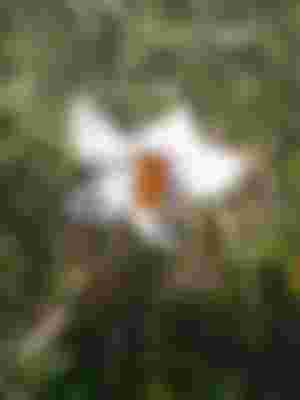
Admito que un parque con una única especie de césped regado, cortado, fertilizado y rociado con pesticidas es más prolijo que mi parque. Muchísimo más prolijo. Los vecinos me preguntan por qué no corto el pasto tan seguido como ellos. Puede haber serpientes, me dicen. Se juntan ratas, me dicen. Esas plantas se hacen plaga, me dicen. Hay otras cosas que no me dicen, claro, pero sé que muchos las piensan porque los he escuchado decirlas en otros lados: los pastos altos son mugre; los que no cortan el pasto son abandonados, vagos. Me suena aquella canción de Atahualpa:
Porque no engraso los ejes
me llaman abandonao.
Si a mí me gusta que suenen,
¿pa qué los quiero engrasar?
El gobierno debería obligar a la gente a cortar el pasto, piensan, porque los pastos altos juntan bichos, afean el paisaje. Pero esos pastos no son mugre. Son el ambiente natural de esta región (o más o menos natural, porque del ambiente originario de esta zona queda poco y nada). Es lo que había antes de que llegáramos nosotros con nuestro afán de prolijidad, de tener todo bajo control y a nuestro servicio. Y esas plantas que crecen solas no se hacen plaga si el ambiente está equilibrado (es decir, si lo dejamos en paz por cierto tiempo…). Todo lo contrario: conviven muchas especies; compitiendo, por supuesto, porque así es la naturaleza, pero formando un paisaje infinitamente más diverso que la monotonía del césped.
I admit that a park with a single species of lawn watered, mowed, fertilized and sprayed with pesticides is neater than my park. Much neater. Neighbors ask me why I don't mow the grass as often as they do. There might be snakes, they tell me. Rats gather, they tell me. Those plants become pests, they tell me. There are other things they don't tell me, of course, but I know that many people think them because I have heard them said elsewhere: tall grasses are dirt; those who don't cut the grass are abandoned, lazy. That song by Atahualpa comes to mind:
Because I don't grease the axles
they call me a careless man.
If I like them to sound,
why do I want to grease them?
The government should force people to cut the grass, they think, because tall grasses gather bugs, they uglify the landscape. But those grasses are not dirt. They are the natural environment of this region (or more or less natural, because there is little or nothing left of the original environment of this area). It is what was there before we arrived with our eagerness for tidiness, to have everything under control and at our service. And those plants that grow on their own do not become pests if the environment is balanced (that is, if we leave it alone for a certain period of time...). Quite the contrary: many species coexist; competing, of course, because that is nature, but forming a landscape infinitely more diverse than the monotony of the lawn.
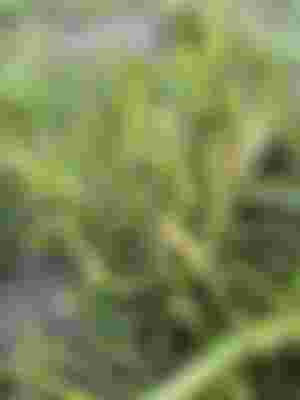
Cuando paso mi cortadora de pasto, estoy ejerciendo artificialmente una presión selectiva. Solo van a crecer en mi parque las plantas que por alguna razón son resistentes a la cortadora. Cuanto menos corto el pasto, más tiempo les doy a las plantas para que cumplan su ciclo, para que puedan florecer y dar semillas, para que puedan volver a nacer al año siguiente. De vez en cuando corto el pasto, por supuesto (salvo en ciertos sectores que mantengo inalterados). Esos son justamente los momentos en que hago estas reflexiones, aislado por el ruido de la cortadora, con pedazos de plantas volando para todos lados. Y mientras corto el pasto, voy salvando algunas plantas. Y no me siento especialmente bien por salvarlas. De nuevo, es un poder que no quiero ejercer. ¿Qué plantas salvo? Generalmente las que son bellas, las que tienen flores vistosas o las que sé que son de alguna utilidad para las personas. Cortar el pasto, en mi caso, es como una carrera de obstáculos. Mi parque está lleno de piedras que fue dejando mi hija de 5 años. Cada piedra marca una planta que ama y que no puedo cortar. Y no soy especialmente un artista de la desmalezadora. Me siento más cerca de Tales de Mileto cayéndose en un pozo por mirar las estrellas. Y entonces, mientras corto algunas plantas y dejo otras me pregunto por qué hago eso, por qué dejo las plantas que destacan por ser bellas y corto las que no lo son. Las que no lo son en ese preciso momento, además. Porque muchas podrían florecer dentro de un mes si no las cortara. O sus flores podrían abrirse solo de noche, cuando no corto el pasto. ¿Y qué si no las considero bellas? En general, no elegimos a nuestras amistades por su belleza; ni siquiera elegimos solo por su belleza a nuestra pareja. ¿Por qué deberíamos entonces dejar vivir solo a las plantas hermosas? Creo que la belleza está sobreestimada.
When I run my mower, I am artificially exerting selective pressure. Only plants that for some reason are resistant to the mower will grow in my park. The less I cut the grass, the more time I give the plants to complete their cycle, so that they can flower and set seed, so that they can re-sprout the following year. From time to time I cut the grass, of course (except in certain areas, which I keep unchanged). Those are precisely the moments when I make these reflections, isolated by the noise of the mower, with pieces of plants flying everywhere. And as I cut the grass, I'm saving some plants. And I don't feel particularly good about saving them. Again, it's a power I don't want to wield. Which plants do I save? Usually the ones that are beautiful, the ones that have showy flowers or the ones that I know are of some use to people. Mowing the grass, in my case, is like an obstacle course. My park is full of stones left by my 5-year-old daughter. Each stone marks a plant she loves that I can't cut. And I'm not particularly a weed whacker artist. I feel closer to Thales of Miletus falling into a well from stargazing. And so, as I cut some plants and leave others I wonder why I do that, why I leave the plants that stand out as beautiful and cut the ones that are not. The ones that aren't at that very moment, moreover. Because many of them could bloom within a month if I didn't cut them. Or their flowers might open only at night, when I don't mow the grass. So what if I don't consider them beautiful? In general, we don't choose our friends for their beauty; we don't even choose our partners for their beauty alone. Why then should we let only beautiful plants live? I think beauty is overrated.
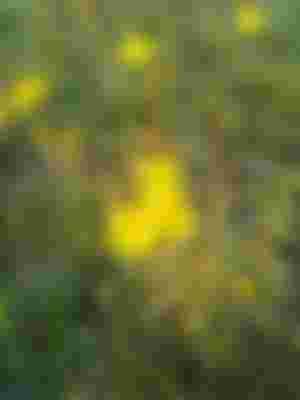
Y de todos modos, cuando salvo una planta, me surge una pregunta. ¿Podrá sobrevivir sola? Hasta ese momento había crecido rodeada de otras plantas, en ciertas condiciones de sombra y humedad, protegida, en parte, del viento. Ahora, en cambio, está sola entre el pasto cortado. Quizás pueda seguir viviendo, quizás no. Lo importante es que las plantas no viven aisladas sino junto con otras plantas y organismos, en un ecosistema. Tenemos una tendencia a pensar en las plantas como seres individuales. Compramos una planta en el vivero porque nos gusta (incluso a veces las coleccionamos). Pensamos en qué lugar de nuestra casa o de nuestro parque nos gustaría verla. La plantamos, la cuidamos, la regamos, le damos amor. Eso debería estar bien. Y sin embargo no me siento bien con eso. No me siento bien como desmalezador omnipotente, ni con el olor del pasto recién cortado, ni con la prolijidad, ni con la belleza. Pienso que nosotros, los amantes de las plantas, podríamos ver las cosas de otro modo. Pienso que nosotros podríamos hacer un cambio si dejáramos de amar a las plantas y empezásemos a amar los ecosistemas.
And anyway, when I save a plant, a question arises: Can it survive alone? Up to that moment it had grown surrounded by other plants, in certain conditions of shade and humidity, partly protected from the wind. Now, on the other hand, it is alone among the cut grass. Perhaps it can continue to live, perhaps not. The important thing is that plants do not live in isolation but together with other plants and organisms, in an ecosystem. We have a tendency to think of plants as individual beings. We buy a plant at the nursery because we like it (sometimes we even collect them). We think about where in our house or in our park we would like to see it. We plant it, care for it, water it, give it love. That should be fine. And yet I don't feel good about it. I don't feel good about being an omnipotent grass cutter, nor do I feel good about the smell of freshly cut grass, or the neatness, or the beauty. I think we plant lovers could see things differently. I think we could make a change if we stopped loving plants and started loving ecosystems.
Original en español. Versión en Inglés traducida con Deepl. Las fotografías son todas propias.
Original in Spanish. English version translated with Deepl. The photographs are all my own.
La versión original de este artículo la publiqué en: | The original version of this article was published in:
https://ecency.com/hive-127788/@agreste/reflexiones-de-un-desmalezador-obligado
